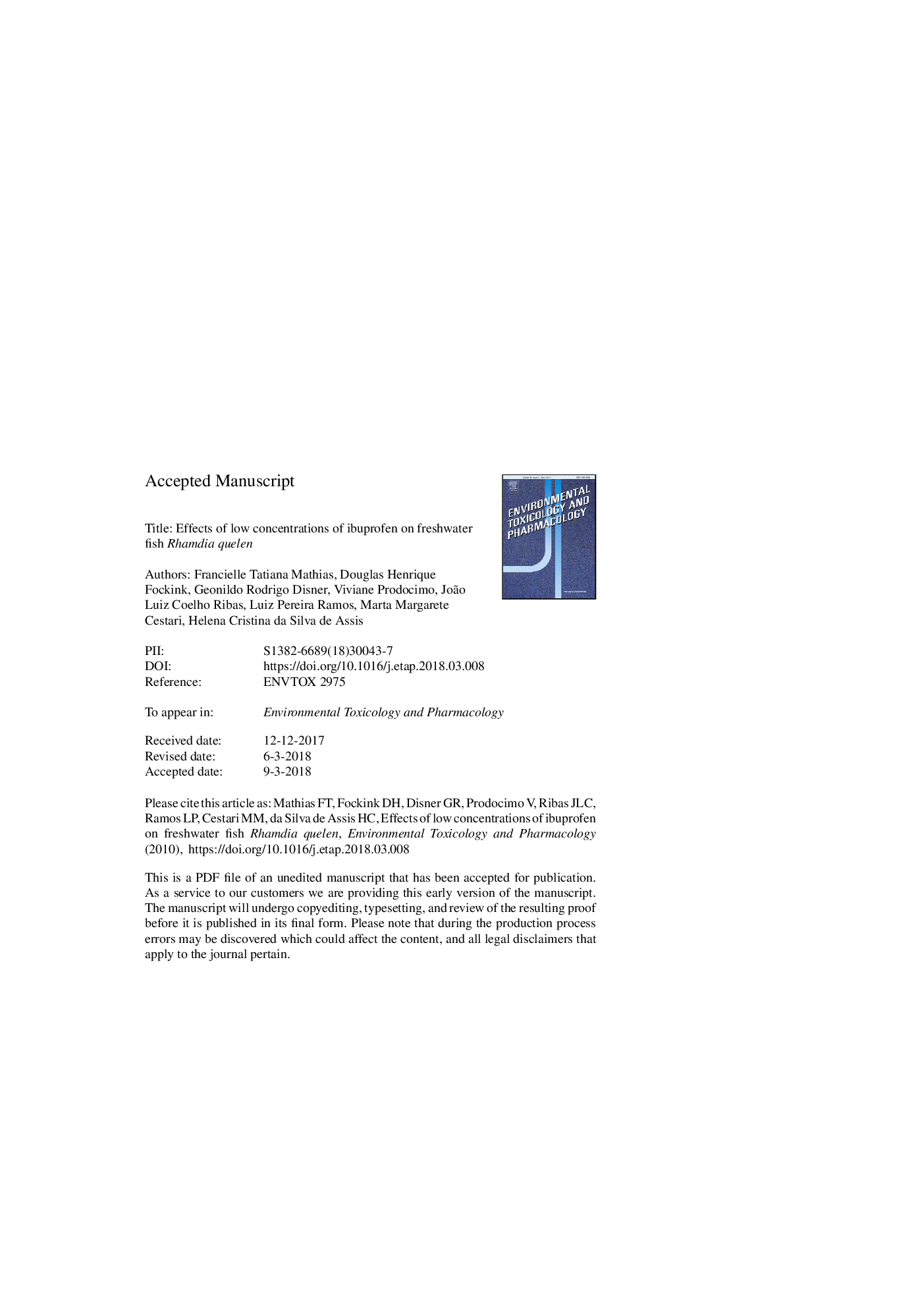| Article ID | Journal | Published Year | Pages | File Type |
|---|---|---|---|---|
| 8545908 | Environmental Toxicology and Pharmacology | 2018 | 30 Pages |
Abstract
Ibuprofen is a pharmaceutical drug widely used by the global population and it has been found in aquatic ecosystems in several countries. This study evaluated the effects of ibuprofen in environmental concentrations (0, 0.1, 1 and 10â¯Î¼g/L) on the freshwaterspecies Rhamdia quelen exposed for 14 days. In the posterior kidney, ibuprofen increased glutathione-S-transferase activity in all groups exposed. Furthermore, increased glutathione peroxidase activity and the levels of reduced glutathione in the group exposed to 10â¯Î¼g/L. Ibuprofen decreased the carbonic anhydrase activity in the posterior kidney in all exposed groups, and increased the activity in the gills in group exposed to 0.1â¯Î¼g/L. The levels of plasma magnesium increased in groups exposed to 0.1 and 1â¯Î¼g/L. In the blood, ibuprofen decreased the white blood cell count in groups exposed to 0.1 e 1.0â¯Î¼g/L. Therefore, these results indicated that ibuprofen caused nephrotoxicity and demonstrated immunosuppressive effect in Rhamdia quelen.
Related Topics
Life Sciences
Environmental Science
Health, Toxicology and Mutagenesis
Authors
Francielle Tatiana Mathias, Douglas Henrique Fockink, Geonildo Rodrigo Disner, Viviane Prodocimo, João Luiz Coelho Ribas, Luiz Pereira Ramos, Marta Margarete Cestari, Helena Cristina Silva de Assis,
